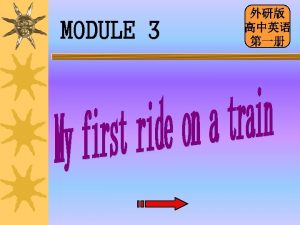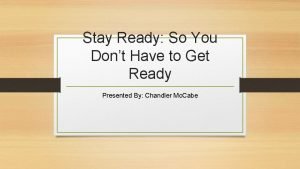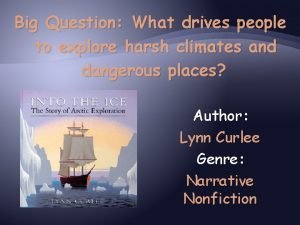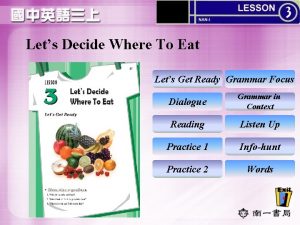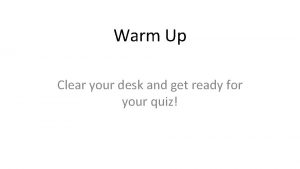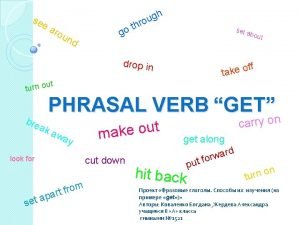Get Ready to Read What drives people to









- Slides: 9

Get Ready to Read What drives people to explore harsh climates and dangerous places? • The explorers are smart about maneuvering to reach their goals. In what ways do you maneuver or plan carefully in your life? • Mastery can mean a very great skill or knowledge. Do you know anyone who has mastery of a subject? How do you think that person achieved his or her mastery?

Get Ready to Read Amazing Words Unconventional – We read about several unconventional explorers. Do you think all of the explorers were unconventional people? Why or why not? Peary’s wife went along on one of his expeditions. Why was this unconventional? Recall what you know about prefixes and base words. What kind of person do you think is conventional? Uninhabited – not lived in The hikers were glad to find an uninhabited cabin where they could rest. Have you ever seen an uninhabited place? What was it like?

Get Ready to Read Procedural Text Have you read a text that told you how to make something, do something or put something together? What was it? Procedural Text Element: List of materials Element: List of tools Element: List of steps Recipe X Possibly X Directions for playing a new game X Possibly X Fixing a bicycle’s flat tire X X X

Read and Comprehend Preview How to Survive in Antarctica, pages 44 -47. What do you think it will be about? As you read, think about: 1. Why is snow cave a good place to survive in an emergency? 2. What do you think is the most important idea on page 45? Why? 3. What does the word berth mean? How did you figure it out?

Read and Comprehend • What features of procedural text did you find as you read the selection? • Look back at the paragraphs about how to make a mound and how to make a trench. Each one has a paragraph that is an introductory paragraph. • How are the two kinds of shelters alike? How are they different? • Which of the kinds of snow shelters do you think you would find easier to make? Why?

Read and Comprehend Vocabulary – Unfamiliar Words The amazing northern lights can be seen occasionally in the skies of the far North. The aurora borealis often seem like huge curtains of light floating in the sky. What context clues in the two sentences help you define aurora borealis?

Language Arts Subject and Object Pronouns • A pronoun used as the subject of a sentence is a subject pronoun. Subject pronouns are I, you, he, she, it, we, and they • A pronoun used as a direct object, indirect object or object of a preposition is an object pronoun. Object pronouns are me, you, him, her, it, us, and them • When a pronoun follows a linking verb and renames the subject of a sentence, use a subject pronoun

Language Arts Spelling Practice Take out your spelling list Step 1 – say the word slowly and listen for the syllables Step 2 – write the word and draw lines between the syllables Step 3 – study the word syllable by syllable

Language Arts Revise and Edit Read your poem and ask yourself: • Did I choose words that will create clear images in the reader’s mind? • Is it clear to my readers how I feel about the story and characters? • Does it have a beginning, middle and end? • Does it have clear rhythm, rhyme and figurative language? • Are words spelled correctly?
